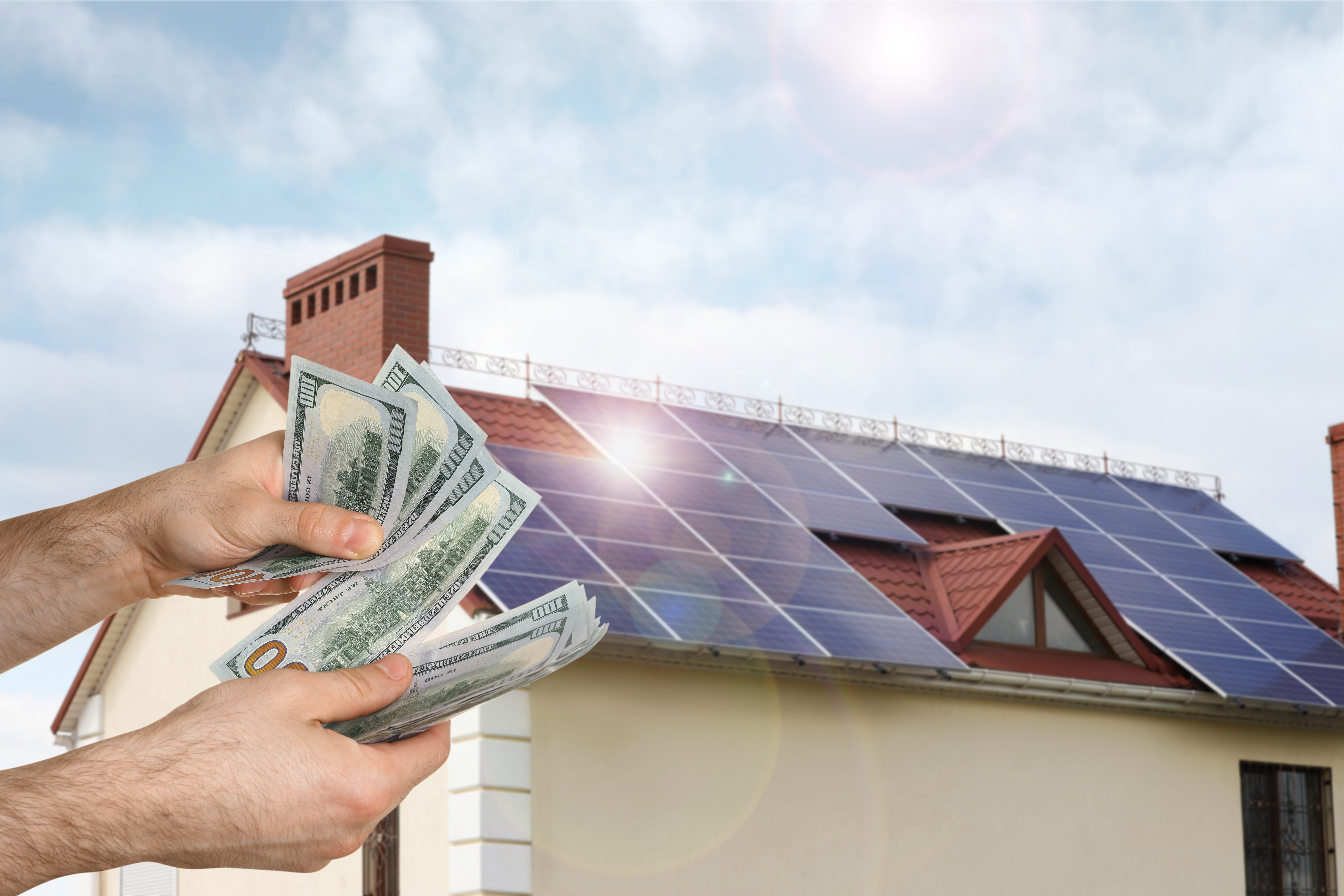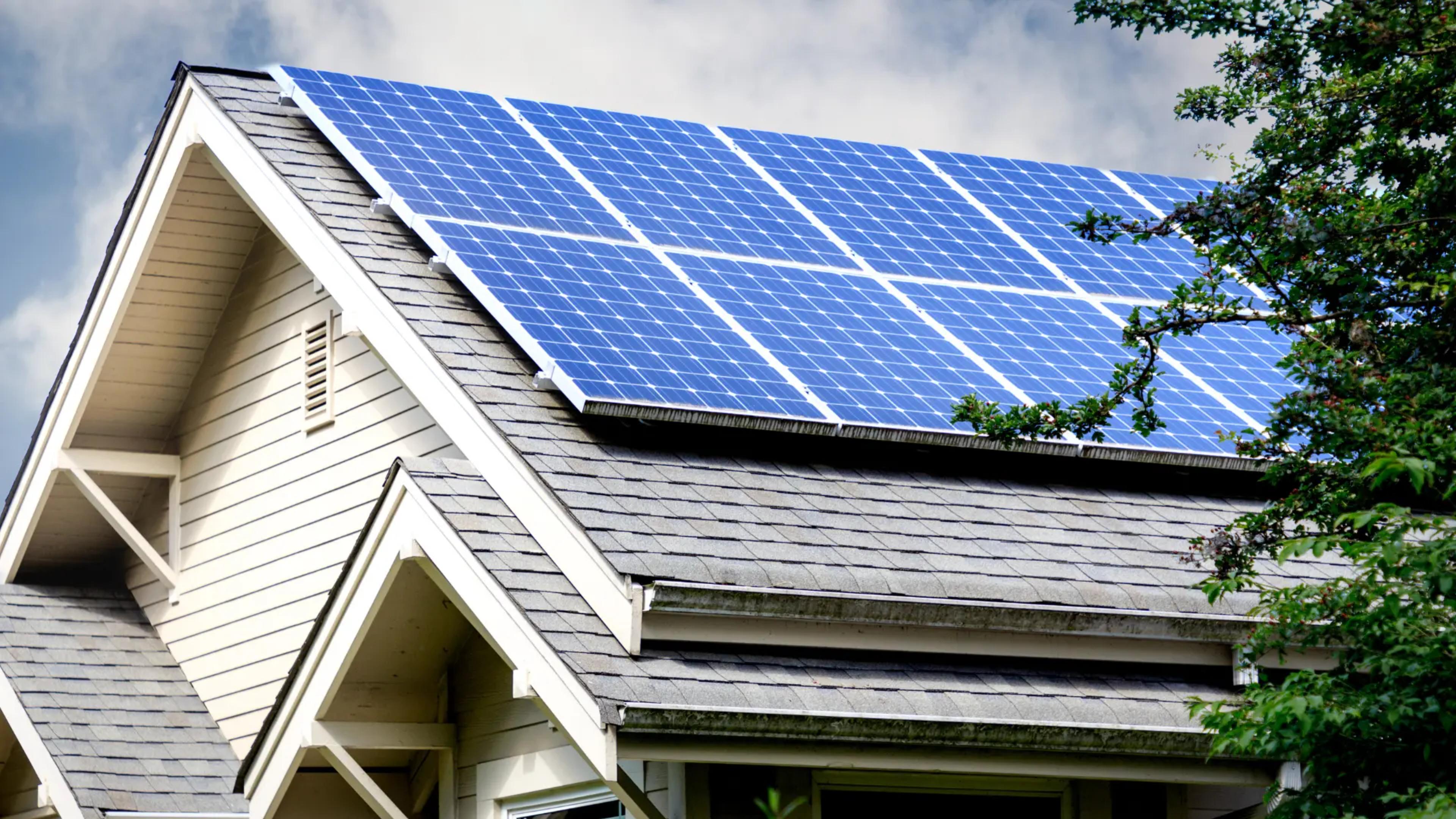How Solar Power Can Assist You Conserve Money and Minimize Your Carbon Impact
The integration of solar energy into your energy portfolio provides an engaging possibility for both financial cost savings and ecological stewardship. By harnessing the sunlight's power, property owners can substantially reduce their month-to-month utility costs while also safeguarding against the unpredictability of future power prices. The transition to solar contributes to a significant decrease in carbon emissions, straightening personal financing with broader ecological goals. As numerous federal government motivations end up being available, the inquiry arises: exactly how can one efficiently navigate the initial financial investments and recurring benefits of solar innovation to optimize both economic and environmental gains?
Comprehending Solar Power Cost Savings
While the transition to solar energy typically entails an initial investment, understanding solar power savings is vital for homeowners and businesses alike. Solar power systems can substantially decrease power expenses by taking advantage of the sun's power, translating into considerable long-term economic advantages. By producing their own power, individuals decrease dependence on grid power, which is subject to fluctuating costs. These financial savings can collect with time, usually causing a rapid return on financial investment.
Additionally, solar energy systems might get approved for numerous economic rewards, consisting of tax obligation credit reports and refunds, even more boosting their cost-effectiveness. The schedule of internet metering enables individuals to offer excess energy back to the grid, producing an added earnings stream. These elements add to the general savings related to solar energy.

Along with guide monetary financial savings, solar power offers the included advantage of enhancing home value. Residences outfitted with photovoltaic panels are usually extra attractive to buyers, as they assure reduced energy expenses - Simply Solar Illinois. Comprehending these aspects is important for any individual considering solar power, as it highlights not simply the possible economic gains, yet also the more comprehensive ecological and economic advantages of adopting renewable resource options
First Costs vs. Long-Term Benefits
When assessing solar energy, it is very important to evaluate the first expenses versus the lasting benefits. The ahead of time investment for photovoltaic panels, setup, and associated devices can be significant, often varying from $15,000 to $30,000, depending upon the system dimension and home power needs. This preliminary expense may deter some property owners; nonetheless, it is essential to consider the possible cost savings with time.
When set up, solar power systems can considerably reduce or even remove monthly electricity bills, causing substantial long-lasting financial advantages. Researches show that home owners can save anywhere from $10,000 to $30,000 over the life-span of their planetary system, typically 25 years. Additionally, many states use rewards, tax debts, and discounts that can offset first expenses, making solar extra easily accessible.

Decreasing Your Carbon Impact
Decreasing your carbon impact is an essential consideration in today's environmentally mindful society, and adopting solar energy is among one of the most reliable techniques to accomplish this goal. Solar power is a clean, renewable energy that dramatically decreases reliance on nonrenewable fuel sources, which are major factors to greenhouse gas emissions.

Moreover, the prevalent fostering of solar technology urges the development of environment-friendly tasks and sustains technologies in energy storage space and like it effectiveness. The even more individuals and companies spend in solar power, the better the collective reduction in carbon exhausts, promoting a cleaner environment for future generations.
Federal Government Rewards and Rebates
Taking on solar power not only benefits the setting but can likewise lead to significant monetary cost savings, especially with the schedule of federal government motivations and refunds. Different government, state, and local programs are created to encourage house owners and organizations to purchase solar power systems, making the transition more budget-friendly.
Among the most noticeable incentives is the Federal Financial Investment Tax Credit Rating (ITC), which permits planetary system owners to deduct a significant percent of the setup prices from their government tax obligations. This motivation has been essential in reducing the in advance costs related to solar power systems. Furthermore, several states supply their own tax credit scores, grants, and refunds that can better boost savings.
Additionally, some city governments provide real estate tax exceptions for solar installations, ensuring that homeowners do not encounter enhanced real estate tax as an outcome of their renewable resource financial investments. Utility business may also offer rewards, including web metering and feed-in tariffs, which permit solar power customers additional resources to offer excess power back to the grid.
Selecting the Right Solar System
Choosing the proper planetary system is essential for maximizing power effectiveness and financial benefits. The choice rests on a number of elements, consisting of energy requirements, spending plan, and offered area. Homeowners must begin by analyzing their electrical energy consumption to determine the system size required for ideal efficiency.
Next, think about the different kinds of solar innovations available. Simply Solar Illinois. Solar (PV) panels are the most common, converting sunshine directly right into electrical power, while solar thermal systems concentrate on heating water. Each kind has distinctive advantages relying on individual needs
Budget plan considerations are likewise critical. Preliminary installment prices can differ considerably, so it is essential to contrast quotes from numerous service providers and explore financing options. Federal government incentives and discounts can even more lower the economic problem, making solar systems much more available.
Verdict
In summary, solar energy offers a sensible option for attaining substantial cost savings while at the go to the website same time decreasing carbon discharges. The preliminary investment, though substantial, returns substantial lasting financial benefits, with potential savings ranging from $10,000 to $30,000 over 25 years. In addition, the environmental advantages of solar power add to lasting practices important for combating climate adjustment. Government motivations improve the feasibility of solar modern technology adoption, urging a transition towards a cleaner, more financially efficient power resource.